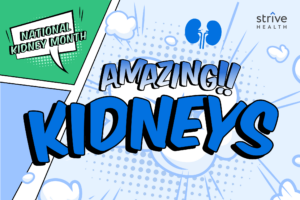Struggling to Sleep — Switch it Up!
Author : Melanie Nelson, LCSWSmall changes to your bedtime routine, like changing how you think or worry about sleeping, relaxation techniques and creating other good habits, can help you get a better night’s rest.
Give yourself a bedtime.
Going to bed and waking up at the same time every day trains your brain to naturally feel tired at bedtime.
- Figure out how many hours you need to feel your best.
I do my best with 8 hours, although I do “okay” with just 7. I struggle with less, so I know I need 7-8 hours each night. - Pick a realistic time you would like to wake up in the morning and work backwards from there.
I need to be up at 6 am to prepare my family and myself, so I should be asleep by 10 pm. - Add an extra 1-2 hours to that time to wind down/relax before bed. Set a reminder alarm if needed!
I should start getting ready for bed around 8 pm every day and then start my wind-down activities. - Don’t sleep in on your days off! Keep the same bedtime and wake time every single day.
Build a pre-bedtime routine to relax.
It’s easier for your mind (and body) to fall asleep when your routine is the same every night and you aren’t doing anything that’s mentally stimulating.
- Start with self-care. Bathe, take medications, brush your teeth, use the restroom and put on pajamas now so you won’t have to do it later, and this will cue your brain that it’s time for bed. Bathing also helps lower your body temperature, priming you for sleep! If you prefer super-hot showers or baths, take them 1.5-2 hours before bed to give your body temperature time to cool down.
- Brainstorm things you enjoy doing that are relaxing. Good choices include reading a book, listening to a podcast or music, doing some light yoga or deep breathing exercises, crocheting or knitting, playing a board or card game, journaling, writing out tomorrow’s to-do list, writing down the things you’re grateful for and watching television. Reading a book or listening to a book on tape is especially good if you have anxiety because your brain has less space for worrying. You also blink less while reading, which can help your eyes feel tired more quickly.
- Don’t do anything addicting or stimulating. This includes things that are hard to stop doing, like playing certain online games (ahem, Candy Crush, I’m looking at you!), reading social media, or doing research. You want to soothe your mind, not excite it!
- If you enjoy watching TV before bed, be mindful of the kinds of shows you are watching. Good choices are programs you have seen before and love, like a favorite movie, or non-stimulating options like a cooking show or documentary. Reruns are always great too!
- Keep the lights dim.
Don’t take long naps.
Studies have shown that 10-20 minute naps give you the biggest brain benefits, so set an alarm if you need to nap. Napping longer than this can leave you groggy and disoriented when you wake up and can also make it harder to fall asleep at bedtime.
- Skipping your nap during the day will make you more tired at night, which will make it easier to fall asleep.
- Don’t nap after early afternoon, or it could interfere with your bedtime.
If you are on dialysis, consider changing your shift or modality.
- In-center dialysis patients may consider asking for a 2nd or 3rd shift schedule, even if it means changing to a less desirable day.
- Other modalities, such as Peritoneal Dialysis (PD), Home Hemodialysis (HHD), and Nocturnal Dialysis (NHD) tend to provide better blood cleaning due to more frequent or longer dialysis, and patients report better sleep as a result. Talk with your nephrologist if you would like to explore this.
- If you are doing CCPD and your cycler machine is keeping you awake at night, talk with your PD nurse about alternatives.
Other tips:
- Get some sunshine! Being outdoors helps strengthen your sleep-wake cycle, or circadian rhythm, by telling your brain when daytime is.
- Don’t exercise in the evening. Exercise is important and makes you feel great…but that high you feel after a vigorous workout can help prevent you from getting your Zzzz’s.
- Don’t drink caffeine past mid-afternoon. Caffeine lasts longer in your system than you think!
- Limit or avoid alcohol. While booze initially may make you feel tired, its sedative effects wear off while you are sleeping, disrupting sleep later in the night.
- Don’t eat before bedtime, as it’s harder to sleep on a full stomach. Instead of producing melatonin, your body is focusing on digestion instead. Eating before bed can also trigger reflux.
- Don’t use the bedroom for anything other than sleep (and sex). You want your brain to associate your bedroom with sleepy time, not activity time. If you just rent a room or live in a studio, try not to lie in your bed except at bedtime. Train your brain to associate bed with sleep!
- Use scent to help you unwind. Lavender, vanilla and chamomile are known to be soothing and can be diffused or sprayed on your pillow. Scent also boosts memory, creating a strong association between that scent and bedtime.
Note: This is the second of a three-part series titled “Struggling to Sleep.” Each article addresses how people with CKD and ESKD can improve their sleep quality and habits.






